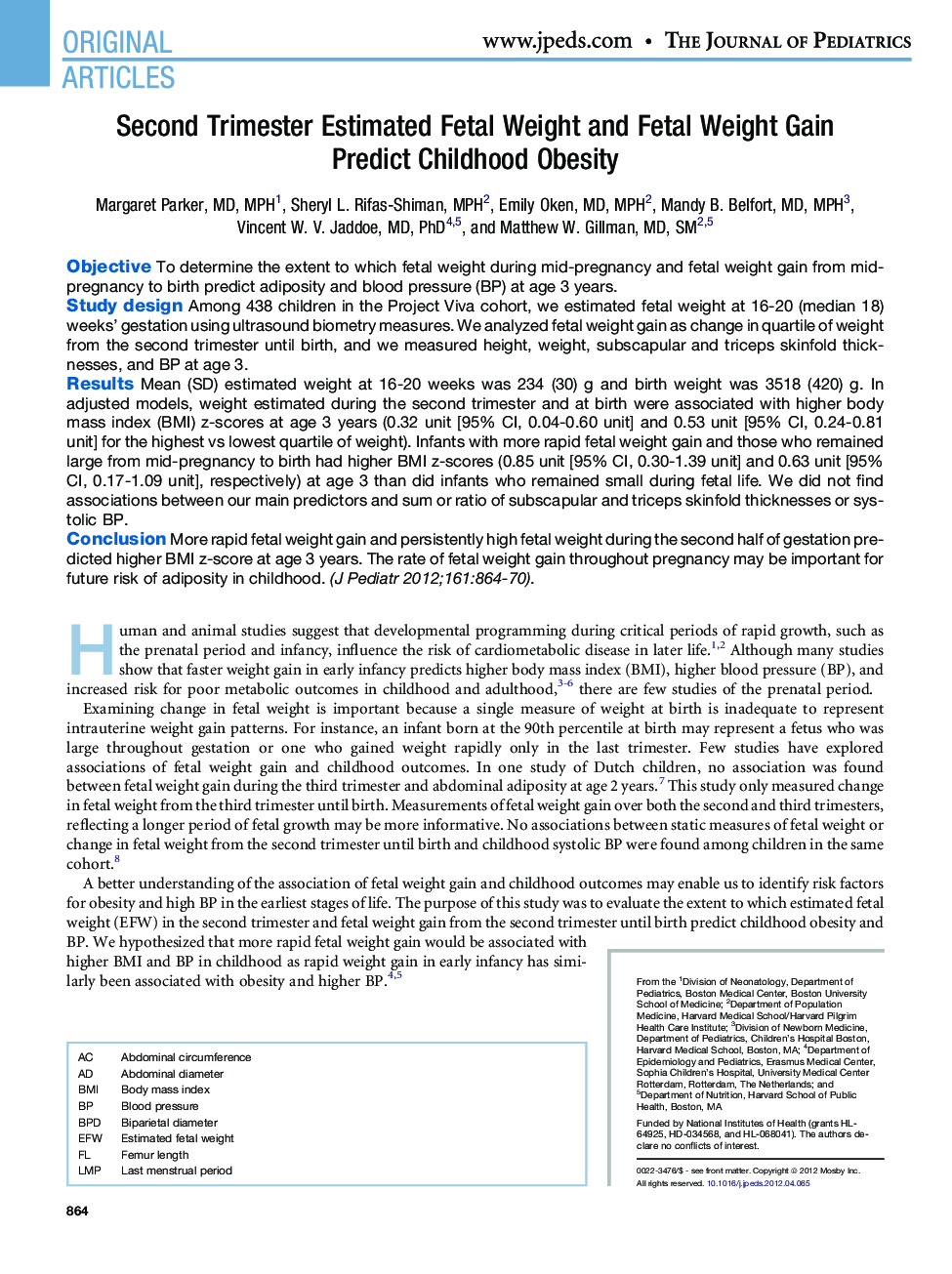| Article ID | Journal | Published Year | Pages | File Type |
|---|---|---|---|---|
| 6224723 | The Journal of Pediatrics | 2012 | 8 Pages |
ObjectiveTo determine the extent to which fetal weight during mid-pregnancy and fetal weight gain from mid-pregnancy to birth predict adiposity and blood pressure (BP) at age 3 years.Study designAmong 438 children in the Project Viva cohort, we estimated fetal weight at 16-20 (median 18) weeks' gestation using ultrasound biometry measures. We analyzed fetal weight gain as change in quartile of weight from the second trimester until birth, and we measured height, weight, subscapular and triceps skinfold thicknesses, and BP at age 3.ResultsMean (SD) estimated weight at 16-20 weeks was 234 (30) g and birth weight was 3518 (420) g. In adjusted models, weight estimated during the second trimester and at birth were associated with higher body mass index (BMI) z-scores at age 3 years (0.32 unit [95% CI, 0.04-0.60 unit] and 0.53 unit [95% CI, 0.24-0.81 unit] for the highest vs lowest quartile of weight). Infants with more rapid fetal weight gain and those who remained large from mid-pregnancy to birth had higher BMI z-scores (0.85 unit [95% CI, 0.30-1.39 unit] and 0.63 unit [95% CI, 0.17-1.09 unit], respectively) at age 3 than did infants who remained small during fetal life. We did not find associations between our main predictors and sum or ratio of subscapular and triceps skinfold thicknesses or systolic BP.ConclusionMore rapid fetal weight gain and persistently high fetal weight during the second half of gestation predicted higher BMI z-score at age 3 years. The rate of fetal weight gain throughout pregnancy may be important for future risk of adiposity in childhood.
